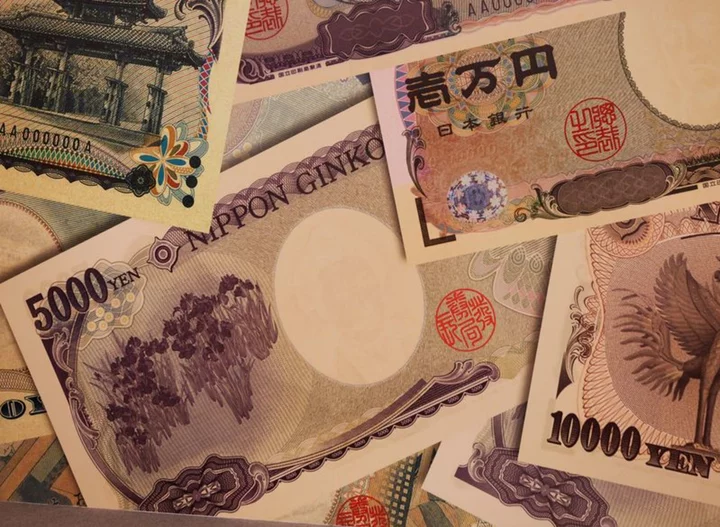By Leika Kihara
TOKYO Japanese authorities are facing renewed pressure to combat the yen's fresh declines driven by market expectations that the Bank of Japan will keep interest rates ultra-low, even as other central banks tighten monetary policy to curb inflation.
Here are possible steps the government and the central bank could take to tackle further yen weakness, which gives exports a boost but hurts households and retailers by inflating already rising import costs for fuel and food.
ESCALATE VERBAL INTERVENTION - HIGHLY LIKELY
Japanese authorities began jawboning markets this week, describing recent yen falls as "sharp and one-sided". Top currency diplomat Masato Kanda also said he would not rule out any options, when asked if intervention could become a possibility.
If the pace of yen declines accelerates, authorities may escalate their warnings to promise "decisive action" against speculative moves.
Such remarks, aired prior to Japan's previous yen-buying intervention last year, would signal that Tokyo was edging closer to directly intervening in the currency market.
CONDUCT YEN-BUYING INTERVENTION - LESS LIKELY
Tokyo made rare forays into the currency market to prop up the yen in September and October last year to stem a plunge in the currency that eventually hit a 32-year low of 151.94 to the dollar.
While the yen is still well off that low, many market players see 145 as Tokyo's line-in-the-sand which, if breached, could trigger another round of intervention. The dollar/yen stood around 143.60 in Asia on Tuesday.
Authorities have said the speed of yen moves, rather than levels, were key to deciding whether to step into the market. This means the chance of intervention will rise if the yen's declines are rapid and viewed as driven mostly by speculative trading.
But yen-buying intervention would be costly as authorities must tap Japan's foreign reserves for dollars to sell.
Tokyo would also need consent from other major economies, particularly the United States, to ensure the scale of intervention is sufficient to turn the tide.
BOJ RAISES INTEREST RATES - HIGHLY UNLIKELY
The Bank of Japan (BOJ) has vowed to keep interest rates ultra-low to support the economy, even as inflation exceeded its 2% target for more than a year.
The dovish stance is partly driving the yen's fall, as markets focus on the divergence between Japan and U.S. and European central banks, which have hiked rates aggressively.
Some market players speculate the BOJ may allow interest rates to rise, such as by raising an implicit 0.5% cap on its 10-year bond yield target, as early as July.
But BOJ policymakers are cautious of taking such steps too soon, given uncertainty on whether wages will keep rising, and the risk of a deeper global economic slump hitting Japan's fragile, export-reliant recovery.
The BOJ also has no intention of using monetary policy tools to directly curb yen declines - a move that could be interpreted as currency manipulation and would go beyond its remit.
That means the BOJ will consider tweaking its yield control policy only if inflation rises for longer than expected, and prods firms to raise wages and prices on a sustained basis.
(Reporting by Leika Kihara; Additional reporting by Tetsushi Kajimoto; Editing by Clarence Fernandez)

